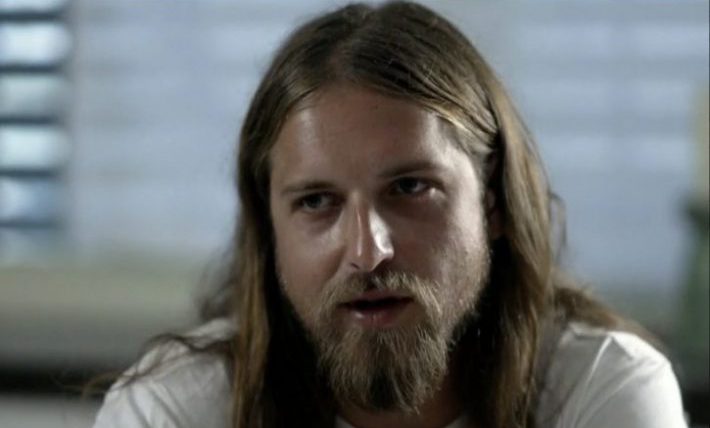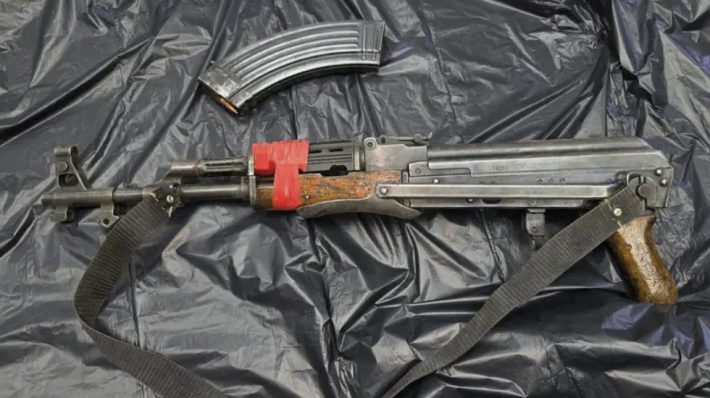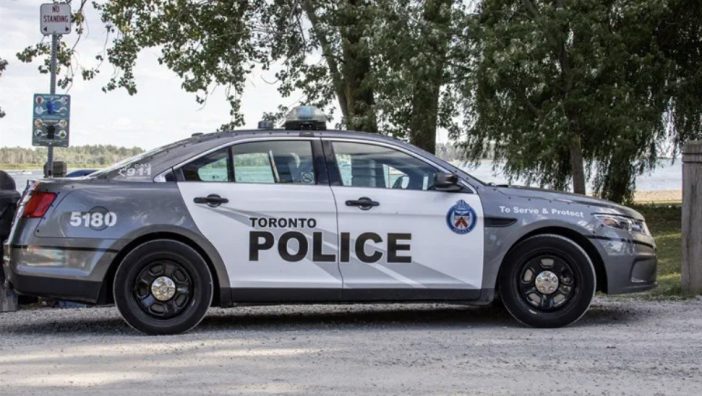Freed captive recalls terrorists using car batteries to electrocute fellow hostage Matan Angrest, who Krivoi says is being badly abused by his captors because he’s a soldier
In a television interview aired Friday, former hostage Ron Krivoi spoke out for the first time about his time in captivity and about the abuse suffered by the young man he met in the tunnels, Matan Angrest. Angrest, a hostage soldier, is still held in Gaza,
Krivoi, an Israeli-Russian citizen, was taken hostage from the Nova music festival and was freed during the November 2023 ceasefire, in a Hamas nod to Russian President Vladimir Putin.
“As a person, I’m a quiet man, I live my life. That’s why I didn’t give interviews, I just continued my life as it was before – that’s what I asked for, to return to my life,” he told.
Krivoi, a soundman, was working at Nova when terrorists struck, massacring hundreds, raping, abusing and taking dozens hostage to Gaza.
Krivoi was first held for some time in a Gaza apartment. At one point, the house was bombed by the Israeli military and Krivoi was able to escape his captors, trying to make his way through devastated Gaza for several days before being recaptured.
In a television interview aired Friday, former hostage Ron Krivoi spoke out for the first time about his time in captivity and about the abuse suffered by the young man he met in the tunnels, Matan Angrest. Angrest, a hostage soldier, is still held in Gaza,
Krivoi, an Israeli-Russian citizen, was taken hostage from the Nova music festival and was freed during the November 2023 ceasefire, in a Hamas nod to Russian President Vladimir Putin.
“As a person, I’m a quiet man, I live my life. That’s why I didn’t give interviews, I just continued my life as it was before – that’s what I asked for, to return to my life,” he told.
Krivoi, a soundman, was working at Nova when terrorists struck, massacring hundreds, raping, abusing and taking dozens hostage to Gaza.
Krivoi was first held for some time in a Gaza apartment. At one point, the house was bombed by the Israeli military and Krivoi was able to escape his captors, trying to make his way through devastated Gaza for several days before being recaptured.
“When I was alone, no one saw me. Once someone did – it ended badly. The people who caught me beat me up. It wasn’t simple. I went through something there… When they caught me and brought me back, the people who beat me were ordinary Gazans who took out all their frustration on me,” he said.
His aunt first revealed that Krivoi attempted to escape without being killed, the only known hostage to do so, shortly after he was released from captivity in Gaza.
Of the tunnel he was then taken to, he said, “These aren’t the tunnels you see in pictures. We were in something really small, deep underground. There wasn’t even a floor – we were on sand, and the mattresses were all moldy. We were inside a very, very small cage. Honestly, about a meter and a half by a meter and a half, and we had to lie down and rest in it – you couldn’t stand. No height, no toilets, no food. We were five people, we ate one small dish with some canned food and a pita that we divided among us. I was there for 51 days and lost nine kilograms (20 pounds) of body weight.”
Krivoi said soldier Matan Angrest arrived a day after he did, and was “completely, completely terrified.” Angrest was in a tank that was attacked by terrorists on October 7. The rest of the crew were killed.
“The interrogations he went through happened while still in Israeli territory – that’s where it started. They already connected him to a car battery on the way and tried to revive him. Using car batteries, they electrocuted him,” Krivoi said. “They weren’t able to interrogate him. He probably wasn’t even in a condition to speak because he was badly injured. His injuries were very severe.”
Krivoi said Angrest continued to be badly abused in captivity, suffering greatly at the hands of captors due to being a soldier. Angrest’s mother said earlier this month that her son will be permanently disabled from his wounds and cited other hostages released during the latest ceasefire deal who said that “he is starving and being held in a little cage in the dark. He doesn’t see the daylight. He is exposed to torture and violence and never sees the Red Cross.”
Of his own time as a captive, Krivoi said, “This is something that even if a person tries to imagine – they’ll never be able to truly understand what it’s like down there.”
“I know that if I didn’t have Russian citizenship, I could still be in that tunnel with Matan to this day. I’m here because of a miracle – it was Putin who brought me home. If not for him, I wouldn’t be here today,” added Krivoi, who was born in Israel to a Russian immigrant family.
Hamas has released several other hostages with Russian citizenship in a gesture to Putin, including Elena Trufanova, who along with her son Sasha Troufanov and his girlfriend Sapir Cohen met Putin at the Kremlin last week.
Days before Troufanov’s return from Gaza in February, a deputy Russian foreign minister met with a senior Hamas official in Moscow and urged the terror group to keep “promises” to release him and Maxim Herkin, a current Israeli hostage from the Donbas area of Ukraine who has Russian relatives.
Earlier this month, Hamas released a propaganda video featuring Herkin and fellow hostage Bar Kupershtein, the first sign of life from both men since they were abducted by terrorists from the Nova music festival near Re’im.
Herkin, who was 35 at the time of his abduction, has a three-year-old daughter, and was the primary provider for his mother and 11-year-old brother. He attended the Nova festival by chance, invited by friends at the last minute. It was the first time he had gone to a rave.
In February, a top Hamas leader said that Herkin would be prioritized during the second stage of the hostage deal, if it were to be signed, as a gesture to the Russian government. However, the agreement between Israel and Hamas fell apart after its first stage, with Israel renewing the fighting in Gaza last month.
Including Herkin and Kupershtein, 24 hostages are believed to still be alive of the 59 total hostages that remain in captivity in Gaza.





